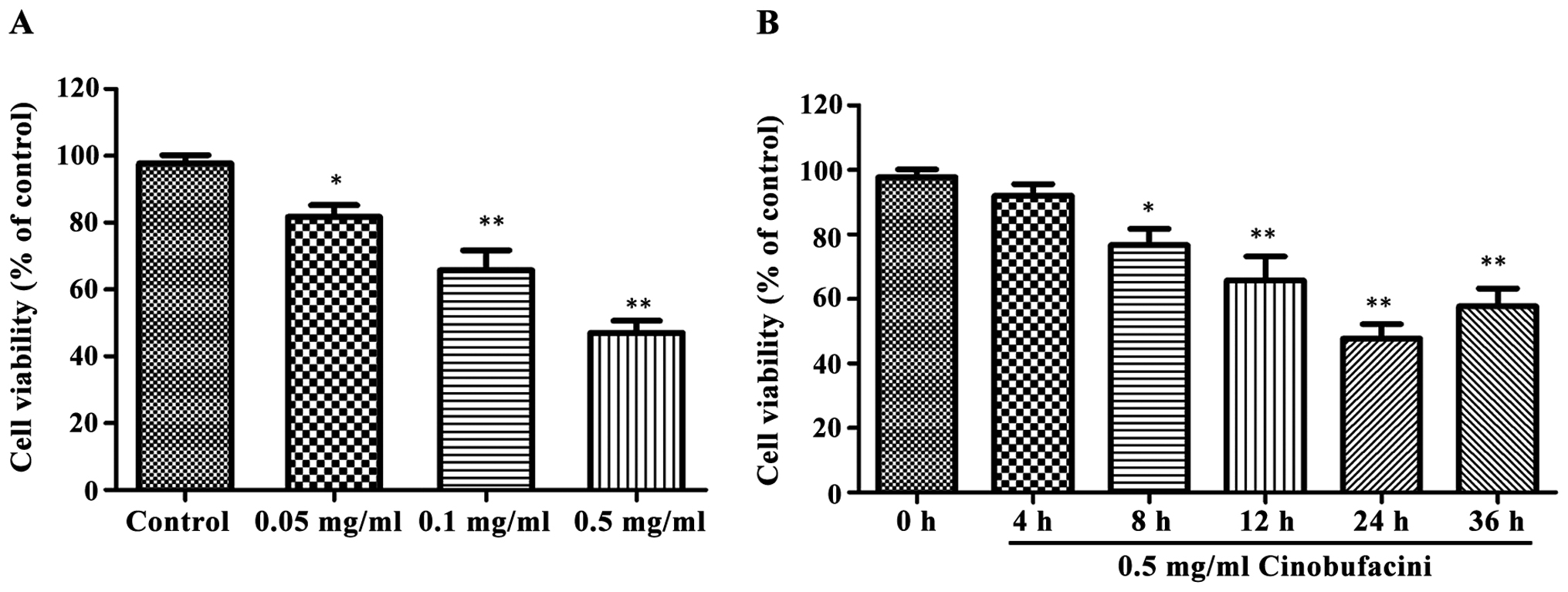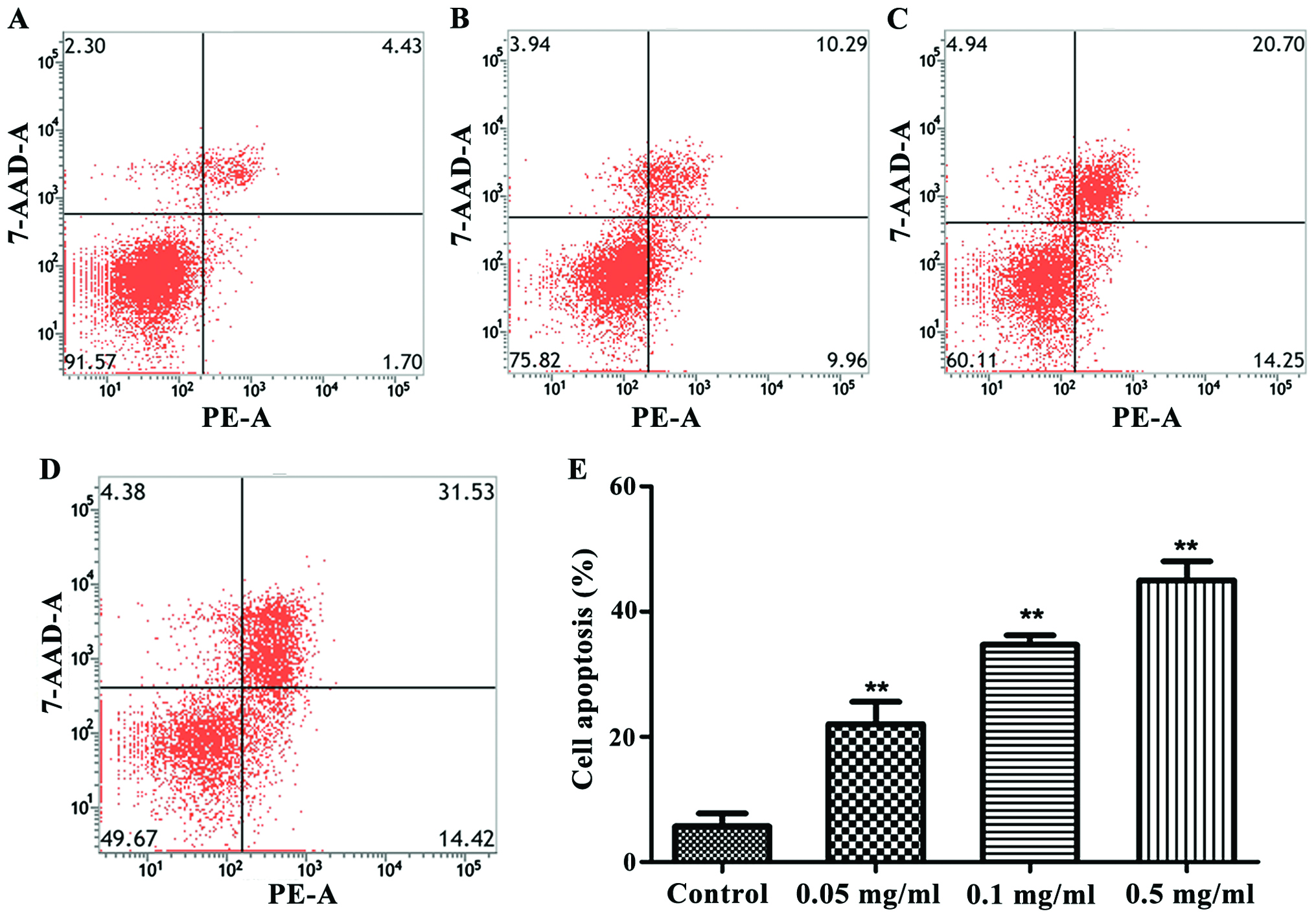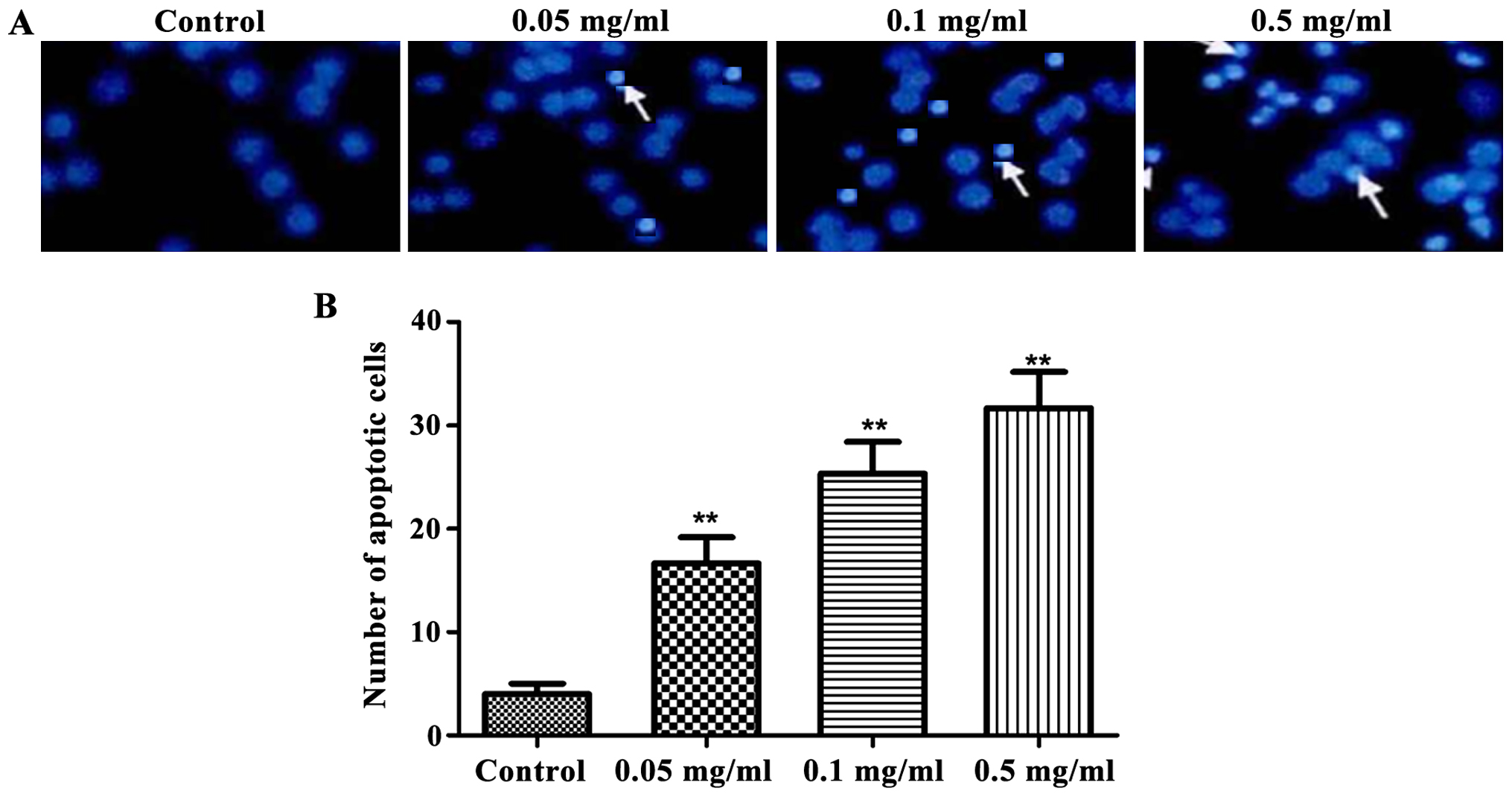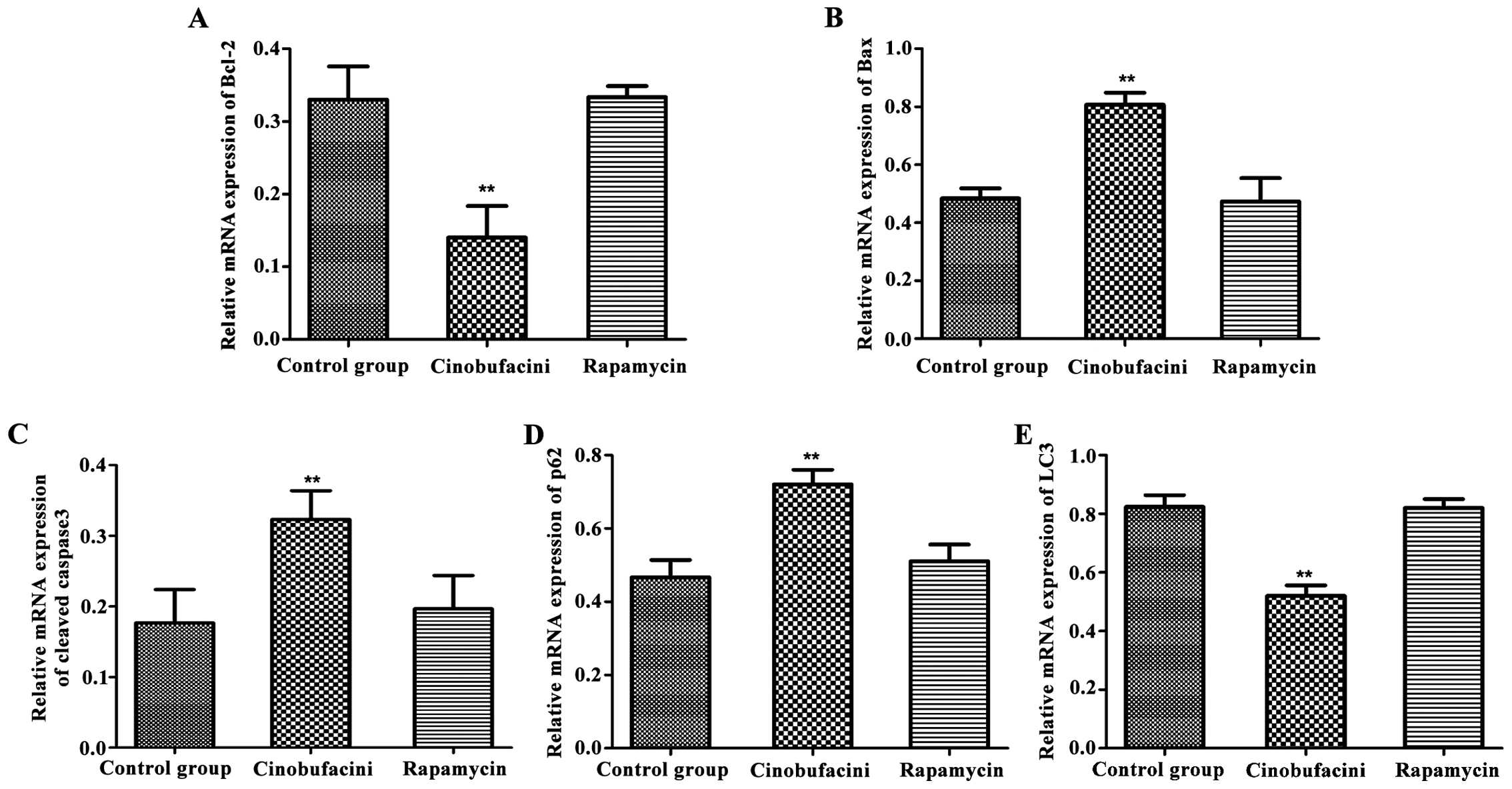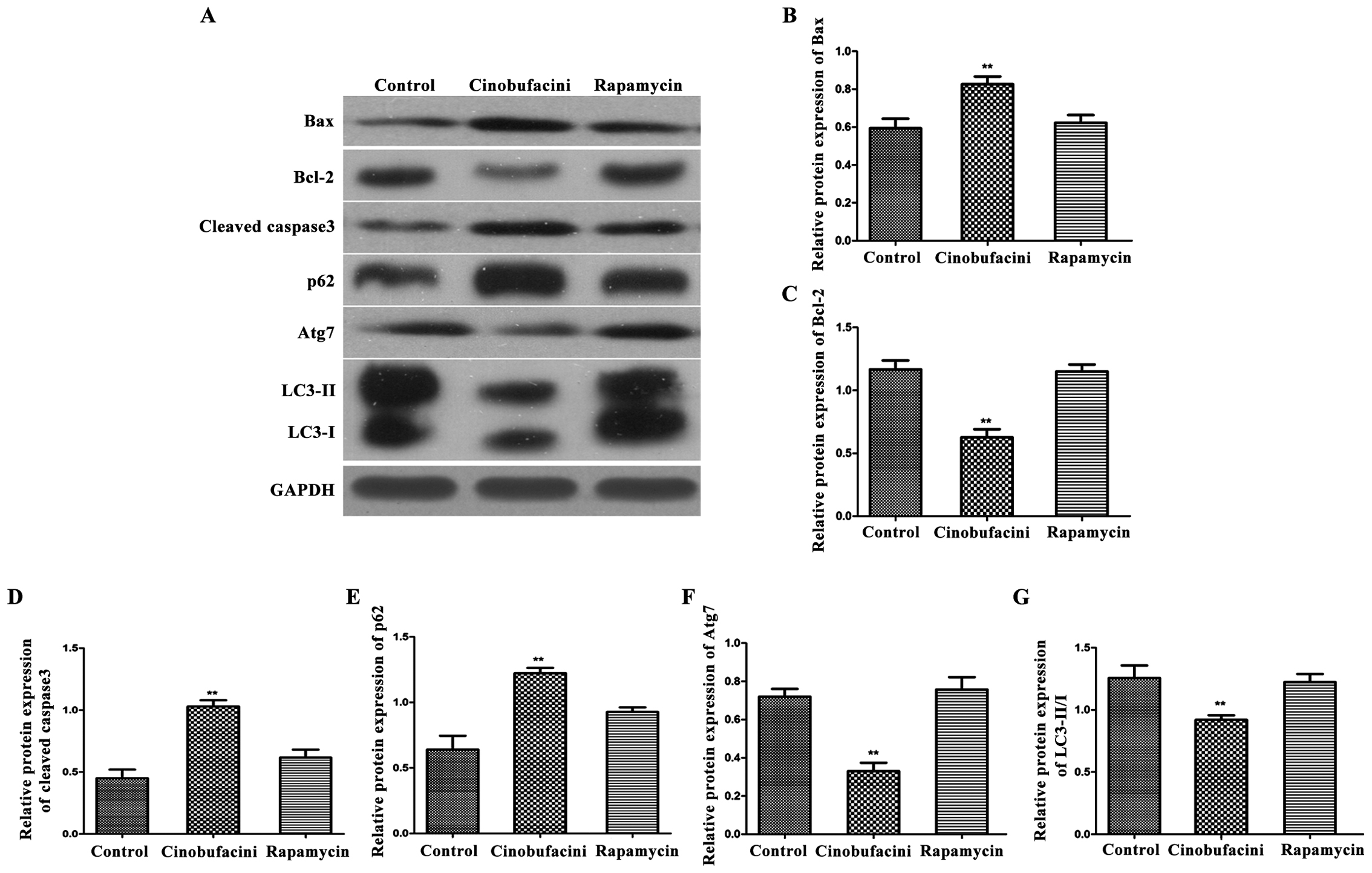|
1
|
Figueroa JD, Ye Y, Siddiq A, Garcia-Closas
M, Chatterjee N, Prokunina-Olsson L, Cortessis VK, Kooperberg C,
Cussenot O, Benhamou S, et al: Genome-wide association study
identifies multiple loci associated with bladder cancer risk. Hum
Mol Genet. 23:1387–1398. 2014. View Article : Google Scholar : PubMed/NCBI
|
|
2
|
Egbers L, Grotenhuis AJ, Aben KK, Witjes
Alfred J, Kiemeney LA and Vermeulen SH: The prognostic value of
family history among patients with urinary bladder cancer. Int J
Cancer. 136:1117–1124. 2015. View Article : Google Scholar : PubMed/NCBI
|
|
3
|
Chung W, Bondaruk J, Jelinek J, Lotan Y,
Liang S, Czerniak B and Issa JP: Detection of bladder cancer using
novel DNA methylation biomarkers in urine sediments. Cancer
Epidemiol Biomarkers Prev. 20:1483–1491. 2011. View Article : Google Scholar : PubMed/NCBI
|
|
4
|
Tseng-Rogenski S, Gee J, Ignatoski KW,
Kunju LP, Bucheit A, Kintner HJ, Morris D, Tallman C, Evron J, Wood
CG, et al: Loss of 15-hydroxyprostaglandin dehydrogenase expression
contributes to bladder cancer progression. Am J Pathol.
176:1462–1468. 2010. View Article : Google Scholar : PubMed/NCBI
|
|
5
|
Dong J, Zhai X, Chen Z, Liu Q, Ye H, Chen
W and Ling C: Treatment of huge hepatocellular carcinoma using
cinobufacini injection in transarterial chemoembolization: A
retrospective study. Evid Based Complement Alternat Med. May
17–2016.(Epub ahead of print). doi:10.1155/2016/2754542. View Article : Google Scholar
|
|
6
|
Chen T, Yuan S, Wan XN, Zhan L, Yu XQ,
Zeng JH, Li H, Zhang W, Hu XY, Ye YF, et al: Chinese herb
cinobufagin-reduced cancer pain is associated with increased
peripheral opioids by invaded CD3/4/8 lymphocytes. Oncotarget.
8:11425–11441. 2017.PubMed/NCBI
|
|
7
|
Kau MM, Wang JR, Tsai SC, Yu CH and Wang
PS: Inhibitory effect of bufalin and cinobufagin on steroidogenesis
via the activation of ERK in human adrenocortical cells. Br J
Pharmacol. 165:1868–1876. 2012. View Article : Google Scholar : PubMed/NCBI
|
|
8
|
Wang ZJ, Sun L and Heinbockel T:
Resibufogenin and cinobufagin activate central neurons through an
ouabain-like action. PLoS One. 9:e1132722014. View Article : Google Scholar : PubMed/NCBI
|
|
9
|
Ma K, Zhang C, Huang MY, Li WY and Hu GQ:
Cinobufagin induces autophagy-mediated cell death in human
osteosarcoma U2OS cells through the ROS/JNK/p38 signaling pathway.
Oncol Rep. 36:90–98. 2016. View Article : Google Scholar : PubMed/NCBI
|
|
10
|
Lapierre LR, Kumsta C, Sandri M, Ballabio
A and Hansen M: Transcriptional and epigenetic regulation of
autophagy in aging. Autophagy. 11:867–880. 2015. View Article : Google Scholar : PubMed/NCBI
|
|
11
|
Zhao L, Tian X, Duan X, Ye Y, Sun M and
Huang J: Association of body mass index with bladder cancer risk: A
dose-response meta-analysis of prospective cohort studies.
Oncotarget. 8:33990–34000. 2017.PubMed/NCBI
|
|
12
|
Franzen CA, Simms PE, Van Huis AF, Foreman
KE, Kuo PC and Gupta GN: Characterization of uptake and
internalization of exosomes by bladder cancer cells. Biomed Res
Int. 2014:6198292014.doi: 10.1155/2014/619829. View Article : Google Scholar : PubMed/NCBI
|
|
13
|
Lu XS, Qiao YB, Li Y, Yang B, Chen MB and
Xing CG: Preclinical study of cinobufagin as a promising
anti-colorectal cancer agent. Oncotarget. 8:988–998.
2017.PubMed/NCBI
|
|
14
|
Yu Y, Wang H, Meng X, Hao L, Fu Y, Fang L,
Shen D, Yu X and Li J: Immunomodulatory effects of cinobufagin on
murine lymphocytes and macrophages. Evid Based Complement Alternat
Med. 2015:8352632015.doi: 10.1155/2015/835263. View Article : Google Scholar : PubMed/NCBI
|
|
15
|
Ye M, Qu G, Guo H and Guo D: Specific 12
β-hydroxylation of cinobufagin by filamentous fungi. Appl Environ
Microbiol. 70:3521–3527. 2004. View Article : Google Scholar : PubMed/NCBI
|
|
16
|
Wu Q, Lin WD, Liao GQ, Zhang LG, Wen SQ
and Lin JY: Antiproliferative effects of cinobufacini on human
hepatocellular carcinoma HepG2 cells detected by atomic force
microscopy. World J Gastroenterol. 21:854–861. 2015. View Article : Google Scholar : PubMed/NCBI
|
|
17
|
Yin JH, Zhu XY, Shi WD and Liu LM:
Huachansu injection inhibits metastasis of pancreatic cancer in
mice model of human tumor xenograft. BMC Complement Altern Med.
14:4832014. View Article : Google Scholar : PubMed/NCBI
|
|
18
|
Salvador-Gallego R, Mund M, Cosentino K,
Schneider J, Unsay J, Schraermeyer U, Engelhardt J, Ries J and
García-Sáez AJ: Bax assembly into rings and arcs in apoptotic
mitochondria is linked to membrane pores. EMBO J. 35:389–401. 2016.
View Article : Google Scholar : PubMed/NCBI
|
|
19
|
Tiwari M, Sharma LK, Vanegas D, Callaway
DA, Bai Y, Lechleiter JD and Herman B: A nonapoptotic role for
CASP2/caspase 2: Modulation of autophagy. Autophagy. 10:1054–1070.
2014. View Article : Google Scholar : PubMed/NCBI
|















